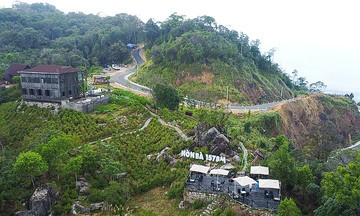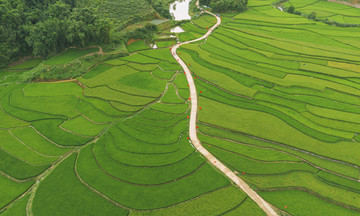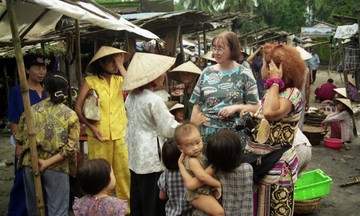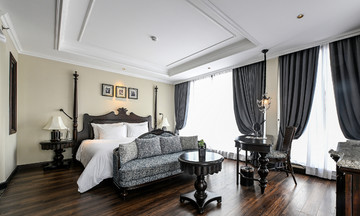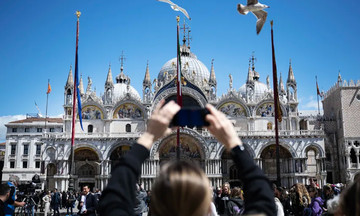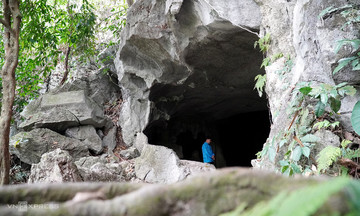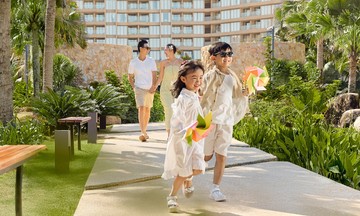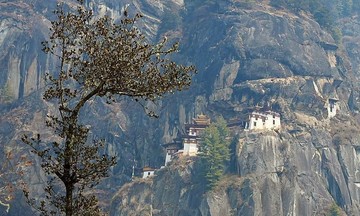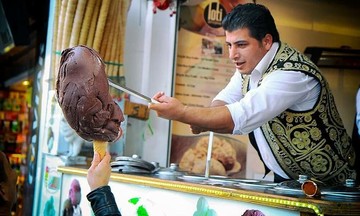Secluded on the Shimabara Peninsula in Nagasaki Prefecture, Unzen Onsen is one of Japan's oldest hot spring towns. The area began welcoming guests during the Meiji period (1868-1912), boasting abundant hot mineral water nestled amidst pristine mountains and forests. By the 1910s, Unzen had become a popular summer retreat, especially for international visitors.
Unzen's highlight is the "hot spring hell" (Unzen Jigoku), an area with about 30 hot springs erupting from the earth. Billowing steam and the pervasive smell of sulfur create an atmosphere that many have likened to hell.
Beyond its natural phenomena, Unzen Hells carries a somber history. From 1627 to 1631, it was a site of torture and execution for hundreds of Christian believers. Several memorials now stand to remember those who died for their faith.
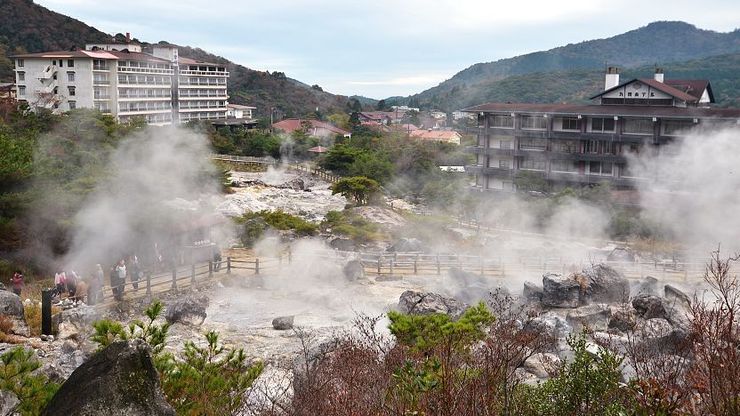 |
Steam constantly rises from the town's hot springs. Photo: Japan Guide |
Steam constantly rises from the town's hot springs. Photo: Japan Guide
About a three-hour journey from Fukuoka, Unzen remains off the beaten tourist path. From Nagasaki Station, visitors take a train to Isahaya and then a 90-minute bus ride to the town. This isolation shields Unzen from the noise and crowds of Beppu, Kyushu's most famous hot spring area.
Located at the foot of the nearly 1,500-meter Mount Unzen volcano, geothermal activity here not only creates a unique landscape but also permeates daily life. "Unzen is a special place," says local guide Yuto Ichiki, 41. Historically a place for spiritual practice, today the town harnesses geothermal energy through the "kantsuke" system—a natural water heater—providing nearly 50% of the heating needs for local inns.
According to Ichiki, Unzen's greatest value lies not in modern amenities but in its connection to nature. Many people lie on the warm earth to stargaze. "That's how we heal emotionally," he shares.
The entire town is within the Unzen-Amakusa National Park, established in 1934. Drilling wells or interfering with the water source is strictly prohibited. This has preserved the pristine state of the hot springs, contrasting with more commercially developed geothermal tourist spots.
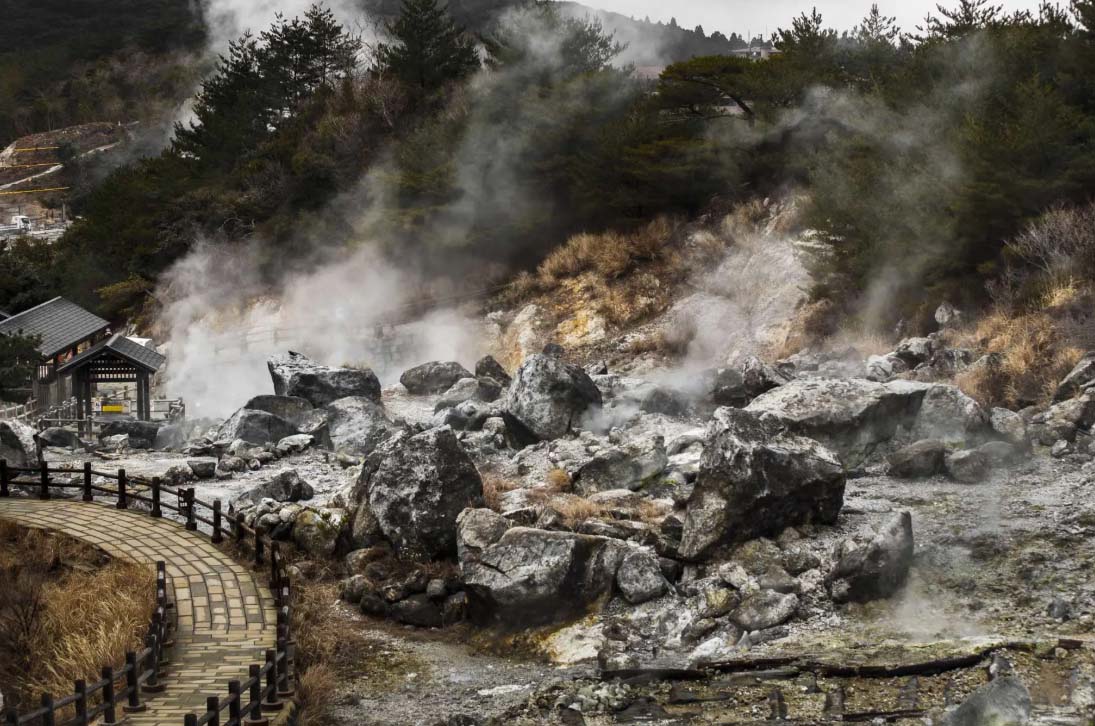 |
Known as "Jigoku," or hell, the high-temperature hot spring area is perpetually shrouded in white steam and the strong smell of sulfur. Photo: Good Luck Trip |
Known as "Jigoku," or hell, the high-temperature hot spring area is perpetually shrouded in white steam and the strong smell of sulfur. Photo: Good Luck Trip
Miyazaki Ryokan is one of Unzen's oldest and most beloved accommodations. This luxury hotel, operating since 1929 and renovated in 2022, offers a quintessential ryokan experience with tatami mats, the gentle clinking of porcelain dishes, and attentive service.
Beyond the hot springs, visitors can participate in harvest experiences at the nearby Unzen Tsumura farm, which supplies organic produce to local restaurants. Emanuele Ercole Carloni, 29, an Italian guide who has lived in Unzen since 2021, describes this as "like stepping into the backstage preparation of a world-class meal."
The local cuisine is also a highlight. The high-end tempura restaurant Kofuku, inside the Unzen Fukudaya Hotel, serves wild vegetables and seafood in the kaiseki style, emphasizing refinement and tranquility in each dish. Unzen lemonade, recommended by the Japan National Tourism Organization (JNTO), is a refreshing choice after exploring the town.
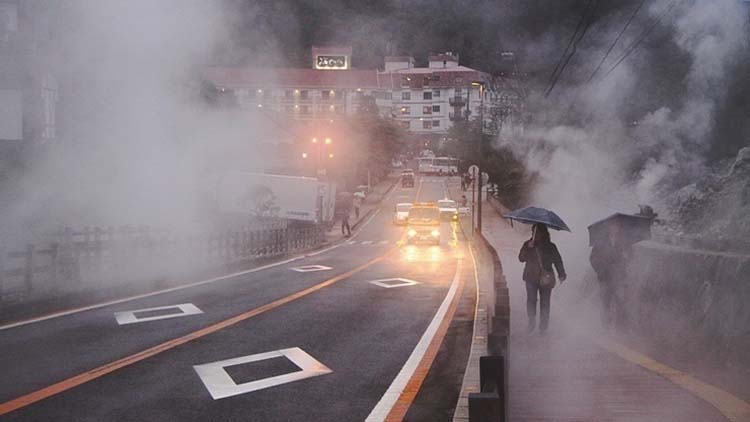 |
Twilight in Unzen Onsen. Photo: Japan Guide |
Twilight in Unzen Onsen. Photo: Japan Guide
Unzen lacks dense signage or packaged tours. Visitors explore the steaming hillsides, the Shirakumo Pond shifting colors with the light, and the lingering scent of sulfur and cedarwood on their own.
"Unzen preserves the true spirit of Japan," says Ichiki. Here, beauty and danger coexist, reflecting how the Japanese people have learned to live in harmony with nature for generations.
Anh Minh (Japantimes)



